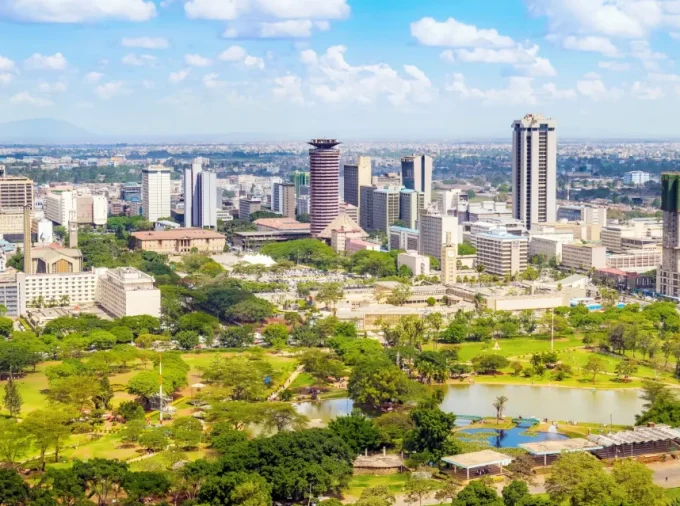Safaricom chief executive Bob Collymore announced a Ksh31.9 billion after-tax profit setting a new record for listed companies. While the company has for a long time stood out as the most profitable in the region, its share price movement clearly tells the fortunes of Safaricom.
Listed on the Nairobi Securities Exchange in 2007 priced at Ksh5 a share, the telco’s stock price dipped immediately hitting Ksh2.90 just a year after Mr Collymore took office. However, its recovery to now an all-time high of Ksh17.55 marks one of the greatest achievement for a man many people were sceptical of.
In this interview, Mr Collymore explains how he did it and how he intends to tackle regulatory challenges facing the sector.
You replaced Mr Michael Joseph on November 1, 2010, when Safaricom share was trading at low of between Sh2 and Sh3 on the Nairobi Securities Exchange. Could you share the strategy you used to drive the share price up to its current high of Ksh17.55?
I rarely consider our share price when I am thinking about the growth of this company. Our focus is delivering the right products and services for the customer, and giving positive returns to shareholders and investors. Safaricom is increasingly the connective tissue that drives many segments of Kenyans’ lives and we actively seek out ways to ensure that we meet those needs to remain relevant in the market.
Our strategy is to transform lives and we achieve this by delivering value across many segments. Our customer interactions through various marketing campaigns and corporate social responsibility initiatives have also strengthened us. From a technology perspective, we have remained the leader in our category and as you may recall, we recently brought M-Pesa home and before we were the first to introduce 4G, just as we were the first to introduce 3G and 2G before.
We reach out to partners who are subject matter experts in their fields to build unique custom-fit solutions for our subscribers. These are some of the factors that have seen not only our share price but also our revenues grow by more than three-fold in the recent years.
Other than the fall in share price, what were the challenges you faced when you came in?
I wouldn’t say that there were really any significant challenges apart from the usual ones you face when you join a new job. I recall my key opportunity at the time was figuring out how to maintain the growth story that had seen the company through its first nine years. My task was to transition from the infrastructure-led strategic focus we had at the time. Safaricom had been very busy laying the foundations for its future growth, we needed to move towards leveraging those assets to deliver a differentiated mobile experience.
When I joined, we were in the middle of the vicious price war and the competitive environment was very vibrant. It taught me some early lessons on what works for our subscriber base and what doesn’t, and that ability to listen to our customers’ needs is something I hope I retain to this day.
Your predecessor, Mr Michael Joseph, was highly regarded with a good track record of success, steering Safaricom to be a leader in innovation and huge growth in profitability. How did you feel as you took over from Mr Joseph? It is only normal that you have some anxiety when you move into a new role.
My first week in office was educative. I quickly realised how critically important Safaricom is to our customers and to the Kenyan economy. However, I was lucky enough to have sat on the Safaricom board for four years prior to taking up the CEO post, and that gave me an opportunity to understand the company and the market that we operate in.
Did you prepare yourself for the big task ahead? What are some of the preparations you made?

As I mentioned, I was already sitting on the Safaricom board and so there were few, if any, preparations to be made other than just to relocate fully into Kenya. From a professional standpoint, I developed a strategy to guide the company in the coming years. We called this Safaricom 2.0 at the time and it entailed streamlining our business in order to align with the changing nature of the business.
The board chair revealed that your contract will be extended by two years. What do you say about this?
I’m privileged to hold one of the most exciting posts in the world and I am obviously delighted by the announcement. My principal priority is to build and institutionalise a value-based leadership team to steer the company over the next 20 or 30 years. Our customers have trusted us for the past 15 years because we have remained relevant to them. For us to continue to do so, we have to get a deeper understanding of our customers’ needs and aspirations and to help meet them.
You started your tenure at the height of a vicious price war that lasted until September 2011. How did you handle this?
We took an early position that the price wars were not sustainable, and made a firm decision to strike the tricky balance between offering a competitive price to customers that would also enable us to earn a margin in order to continue to invest significantly in the network. The toll of that price war was seen in the losses that some players experienced at the time and I feel it continues to be felt to this day.
Is this what led you to put more emphasis in growing non-voice revenue with a special focus on M-Pesa and data business?
When I took office, Kenya was on the cusp of a defining moment; the undersea fibre cables had finally arrived and their impact on lower data prices coupled with our investment in the right infrastructure meant that our subscribers were able to benefit from significantly lower data pricing. This increased uptake for mobile internet.
At the same time, the growing M-Pesa agent network was enabling more payments and we invested in delivering products that went beyond the money transfer concept and won us a bigger share of the market. This was anticipated as part of our growth strategy, informed by the fact that we had already started seeing ourselves as an integrated services provider, rather than just a telecommunications firm.
What will you do over the dominance issue as Communication Authority and Competition Authority of Kenya join hands to develop a common stand on it?
We are glad to see that the CA and the CAK have signed an MoU that will guide the conversations around dominance as it indicates their forward-thinking approach to overseeing the sector. We believe that being dominant in itself is not a crime. It is a factor of market forces that comes about when customers choose to support providers who meet their needs in the most effective way.
The current market discussion would be more pertinent if it was focused on any instances of abuse of dominance, rather than just the arbitrary declaration of dominance merely because we are more responsive to market needs and have therefore attracted a bigger customer base.
(SMART COMPANY)
















































![Pula Co-Founders and Co-CEOs, Rose Goslinga & Thomas Njeru. Pula provides agricultural insurance and digital products to help smallholder farmers manage climate risks, improve farming practices and increase their incomes. [ Photo / Courtesy ]](https://businesstoday.co.ke/wp-content/uploads/2021/01/Pula-Co-Founders-and-Co-CEOs-Thomas-Njeru-Rose-Goslinga.jpg)




























































Leave a comment